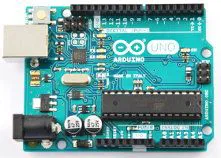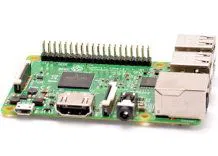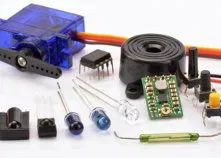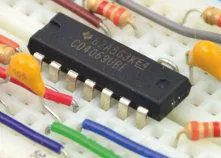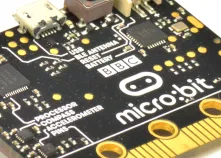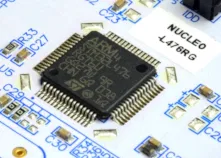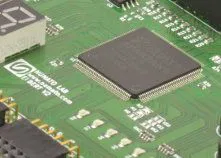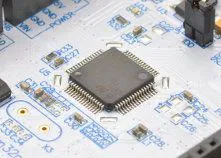Table of Contents:
Wondering what a BNC connector is and what devices it is used in? This article will explain to you the main functions and applications of this popular type of connector. You will also learn the history of its development and how to choose the right plug for your needs. Read on to learn more about BNC plugs and their role in modern electronics.
What exactly is a BNC connector?
BNC connector is a specialized connection used mainly in television technology, radio technology and computer networks, as well as in professional audiovisual equipment. The term BNC is an acronym for “Bayonet Neill-Concelman,” referring to the type of connection (bayonet) and the names of the creators (Neill-Concelman). The BNC connector is characterized by high reliability and resistance to interference, so it has gained popularity in various fields where stable and reliable signal transmission is required.
BNC connector consists of two main components: a metal outer body and an inner pin. The body is made of durable metal and provides protection for the internal pin, which is responsible for signal transmission. The BNC connector is operated by a simple but effective bayonet mechanism.
The plug is inserted into the socket and then rotated by about 90 degrees, which locks it in place and ensures a stable and secure connection. Unique design features make the BNC connector ideal for applications that require quick and easy connection and disconnection of cables, while ensuring reliable signal transmission.
History of the origin and development of the BNC plug
The origins of the BNC plug date back to the 1950s. The BNC is named after two names – Paul Neill and Carl Concelman, who developed it for Amphenol. The BNC connector was developed as a way to quickly and reliably connect cables in radio and television systems. Back then, it was also used in computer prototypes, as an integral part of the data transmission system. Thanks to its unique characteristics and reliability, the BNC connector has gained popularity in many fields of technology.
Since its inception, the BNC connector has undergone many modifications and improvements to meet the growing demands of technology.
Today, after more than 70 years, it is still used in modern electronics, proving itself in situations where stable and reliable signal transmission is important. In particular, in television technology, radio technology and computer networks, as well as in professional audiovisual equipment. The BNC connector is now a standard in many industries, proving its value and versatility over the years.
Examples of typical BNC plug applications
Typical applications BNC connector are very diverse, thanks to its versatility and reliability. Wherever stable and reliable signal transmission is required, the BNC connector finds its place.
Here are some key sectors where these types of connectors are most commonly used:
- TV and radio – the BNC connector is a key component in signal transmission systems in television and radio technology. Its reliability makes it ideal for realizing connections between different devices on the network;
- Computer networks – in networking technology, the BNC connector is often used to connect a variety of network devices. Thanks to its design, the BNC connector ensures stability and reliability of data transmission;
- professional audio-visual equipment – in audio-visual equipment, the BNC connector is often used to transmit audio and video signals, especially in professional equipment, where the quality and reliability of transmission matters.
The BNC connector continues to evolve to meet growing technological demands, offering the promise of continued use in the future. Today it is one of the most popular types of plugs, which are widely used in a variety of technological fields.
On what principle does the BNC connector work?
Operation BNC connector is based on an intricate and precise mechanism that allows for trouble-free transmission of signals, even in the most difficult conditions. The metal body of the connector and the internal pin are key elements that play a significant role in the signal transmission process. The body protects the pin from damage and provides protection from interference that may occur during transmission. The pin, on the other hand, is responsible for direct signal transmission through the cable.
The characteristics of the BNC connector, which is characterized by high reliability, determine its wide application in a variety of fields. The bayonet mechanism, unique to this type of plug, allows quick and easy connection and disconnection of the cable, which is extremely important in the real-time operation of devices. It ensures connection stability, transmission reliability, as well as resistance to interference, which is invaluable, especially for long-distance connections. This makes the BNC connector indispensable in professional audiovisual equipment, television, radio technology and computer networks.
Various types and versions of BNC plugs
The market offers many different types and versions of BNC plugs, which have been developed to meet different technological requirements. All of these versions share features common to BNC plug design, but each has its own unique characteristics that determine their use in specific conditions.
The main types and versions of BNC plugs are:
- standard BNC plug – this is the most common type of BNC plug, which can be found in many electronic devices. It is characterized by versatility and high reliability;
- BNC plug for thin coaxial cable – this type of BNC plug is designed to work with thin coaxial cables. It is characterized by its small size and precision signal transmission;
- BNC plug for thick coaxial cable – this type of BNC plug is designed to work with thick coaxial cables. It is characterized by high durability and high transmission power;
- BNC plug with lock – this version of the BNC plug has a special lock that prevents accidental disconnection of the cable. This is particularly useful in conditions where there is a risk of connection failure.
The choice of the appropriate type of BNC plug depends on specific technological requirements. The variety of available versions of the BNC connector makes it a universal connector that works well in many different applications.
How to choose the right BNC connector?
Choosing the right BNC connector can be crucial to ensuring efficient and reliable signal transmission in your system. Before making a decision, it is worthwhile to familiarize yourself with the different types and versions of these connectors. For example, if your device needs a plug that can withstand minor shocks or rubbing, a locking BNC plug may be the best choice.
Knowing your specific needs and hardware requirements will help you make an informed choice. Remember that not every version of the BNC plug will be suitable for every device. When choosing a BNC connector, always check the technical specifications of a particular model and compare them with the requirements of your system.
How useful was this post?
Click on a star to rate it!
Average rating 0 / 5. Vote count: 0
No votes so far! Be the first to rate this post.





